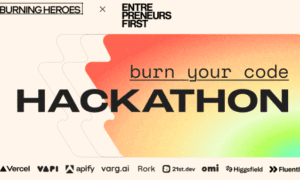What is Coding?
What is coding exactly? Coding, is the language we use to communicate with computers and other machines to carry out tasks. This could involve anything from making a character move in a video game, to calculating complex math problems, or powering the GPS in your car.
Also known as “computer programming”, involves creating software, apps, websites and more. It’s the driving force behind the endless stream of digital technology that permeates our lives. Common examples include the apps on our phones, the video games our children play, and the websites we browse every day. In a culture that is so dependent on technology, one needs to have a solid grasp of coding to fully understand the digital world that surrounds us.
But understanding is just the beginning. When we learn to code, we gain the ability to create, build, and solve problems. It means a child isn’t only a consumer of technology, but also a creator. Think about the sense of pride your youngster might have after creating their first website or first app through programming. It’s these experiences that highlight just how fascinating and satisfying coding can be.
Some of the world’s most popular coding languages include Python, JavaScript, Java, C++, and Swift. Each has its own unique characteristics and applications, making them more suitable for certain tasks than others. But what ties them all together is that they enable us to communicate with computers in a language they can understand. This is what we call ‘coding’.
Why Coding is Important for Kids
Why is coding critical in a child’s education, and why should it be considered alongside traditional subjects like English, Maths and Science? (Not surprisingly, kids who learn to code have improved maths and science scores). It’s about more than just equipping the next generation with the requisite digital skills to succeed in the 21st century. Far more fundamental, it is about nurturing problem-solving skills, computational thinking, and creativity in our children.
Problem-Solving Skills
Consider the process of coding: it’s like a puzzle that tasks children with identifying an issue (the problem), imagining a solution (the design), and expressing that solution in code (the construction). These steps align extraordinarily well with the problem-solving process: define, design, do. Coding, therefore, harnesses and enhances a kid’s problem-solving capabilities in a fun and interactive environment. Each problem they encounter and solve not only boosts their confidence but also refines their logical thinking and decision-making skills. This kind of problem-solving mentality is not limited to coding; it’s a life skill that can be applied in all areas of life.
Computational Thinking
Coding encourages computational thinking. But what exactly does this term mean? It essentially refers to the art of breaking complex problems down into a series of manageable parts (decomposition), identifying patterns (pattern recognition), abstracting relevant information (abstraction), and developing steps to solve the problem (algorithmic thinking); a skill set invaluable in many future-oriented fields. From computer programming to video game design, software development to data analysis, these are all areas where coding knowledge is significantly advantageous. Coding equips our young ones with versatile skills that can be applied across several sectors.
Creativity
Have you ever considered the creative potential coding can unlock in your children? When we picture someone coding, we typically imagine a person hunched over a keyboard, typing away in a language that appears foreign to most of us. However, with the right perspective, coding extends far beyond this stereotype.
As your children learn to code, they begin to discover the power to create and innovate. They can design their own animations, games, and even apps. It’s about more than simply understanding the syntax or memorising the commands of a programming language. It’s a doorway into the wonderful world of creating something from nothing but their imagination.
They manipulate characters and objects, dictate their behaviour, and set the rules of their virtual universe. It’s a bit like being a director crafting a film or an author penning a novel, the process requires imagination and vision. It develops patience and resilience as they tweak and modify their creation until it’s just right.
Preparing Kids for the Future with Coding
If we’re honest with ourselves, the future belongs to the tech-savvy. As a parent, we’d hate to see our children be left behind. It’s high time we recognise that coding is no longer just a hobby or an optional skill but a staple for many future-proof careers. And it’s not too early to start. From app development to making video games and building robots, the possibilities that coding offers are endless and exciting.
Developing Essential Career Skills
Can you imagine a career field that won’t benefit from technology in the future? It’s tough to envision, right? From agriculture and healthcare to banking, every sector is increasingly relying on technology. This is where coding plays a role: It’s the language that drives these technological advancements. Initiate your child into this world, and you’re arming them with a pivotal skill that employers across a broad spectrum of industries are looking out for.
Coding: The Language of the Future
Coding, often dubbed the ‘language of the future’, is increasingly becoming a necessary literacy. It’s as vital as reading, writing, and mathematics. In fact, many schools in the West have already integrated coding into their curriculum, with Asia starting to follow suit as well. Yes, the future of coding looks promising, and it is central to our children’s future success.
So, are we ready to help our children recall the alphabet of the digital age? Let’s introduce them to coding, and together, we can prepare them for a future where they can thrive.
What is the Ideal age for coding
There is no “ideal” age to learn to code because it is highly dependent on individual interests and ambitions. Coding is a skill that can be learnt at any age, from infancy to maturity. Consider the following factors for various age groups:
Children (aged 5 to 12):
Many educational professionals advocate that youngsters begin learning coding fundamentals at an early age. It aids in the development of problem-solving abilities and logical thinking.
Visual and block-based programming languages, such as Scratch or Blockly, are excellent tools for teaching young children the fundamentals of coding.
Teenagers (13-18 years old):
Teenagers can experiment with more complicated languages such as Python, JavaScript, or Java.
They could also think about taking coding classes at school, joining coding clubs, or visiting coding camps.
Young Adults (18–25):
This age group is frequently interested in coding for academic and vocational reasons.
They could think about majoring in computer science or software engineering.
Adults (those aged 25 and up):
It is never too late to learn to code. Many successful programmers began their careers later in life.
Adults may learn to code at their own speed by using online tools, coding bootcamps, or evening sessions.
How To Get Your Child Started With Coding?
Introducing your child to coding is an excellent approach to introduce them to problem-solving, logical thinking, and creativity. Here are some steps you may take to get your youngster started with coding:
Begin with the Fundamentals:
Introduce your youngster to the fundamentals of programming. Explain that coding is similar to providing computer instructions to make it perform things.
Select the Correct Language/Platform:
Choose a programming language or platform that is suitable for beginners. Scratch, Blockly, and Python are popular among children.
Internet Resources:
Use kid-friendly internet resources and tutorials. Websites such as Code.org, Scratch, and Khan Academy provide free coding lessons and projects.
Apps & Games for Education:
Many applications and games are meant to make learning to code entertaining and engaging. Consider the applications Tynker and Minecraft: Education Edition.



































